#joseph boyer
Explore tagged Tumblr posts
Text









162 notes
·
View notes
Text










Cluny Brown (Ernst Lubitsch, 1946).
#cluny brown (1946)#cluny brown#ernst lubitsch#charles boyer#jennifer jones#Dorothy Spencer#Joseph LaShelle
37 notes
·
View notes
Text

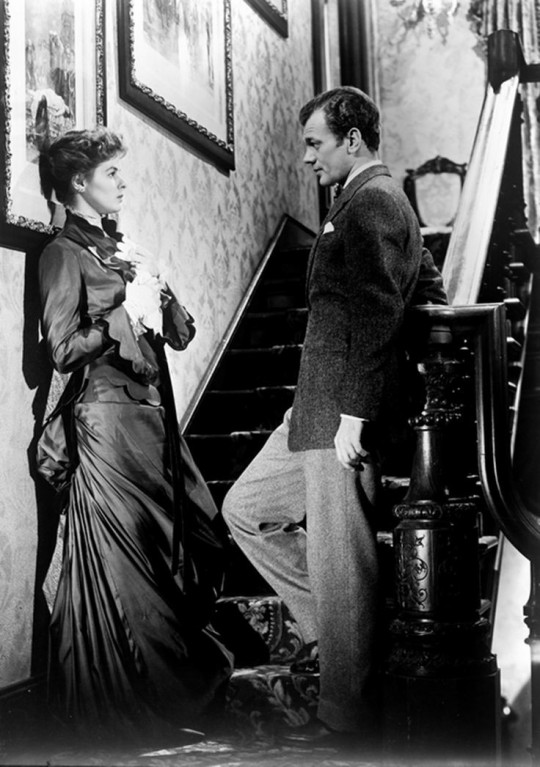
Gaslight, directed by George Cukor (1944)
#foto#fotografia#photo#photography#film photography#film#ingrid bergman#george cukor#40's#40's style#aesthetic#vintage films#gaslight#black and white photography#black and white#b&w#thriller#mystery#charles boyer#joseph cotten#angela lansbury#terry moore
61 notes
·
View notes
Text




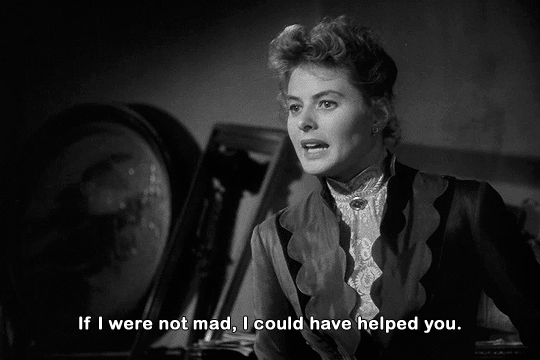
Gaslight 1944
173 notes
·
View notes
Text
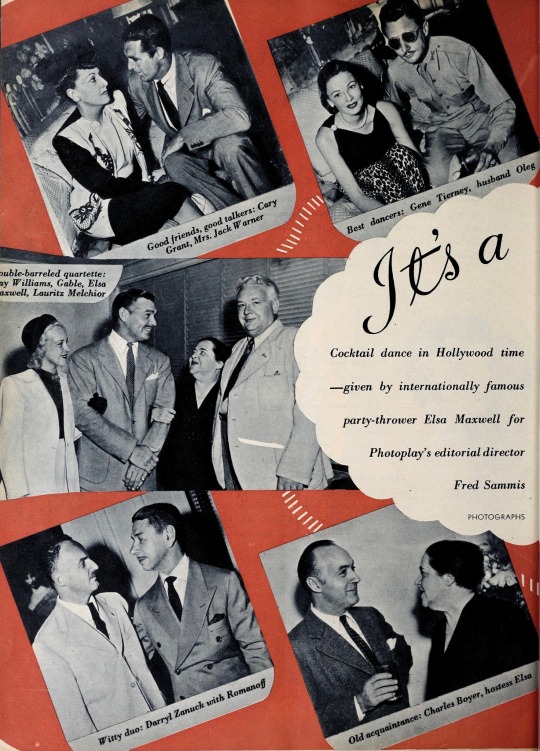

Photoplay Magazine, October 1944.
#1940s#photos by hymie fink#photoplay magazine#cary grant#gene tierney#oleg cassini#kay williams#clark gable#elsa maxwell#charles boyer#lauritz melchior#darryl zanuck#michael romanoff#judy garland#van johnson#janet gaynor#joan fontaine#joseph cotten#lana turner#peter lawford#olivia de havilland#john huston#old hollywood#old magazines#old movies#old movie stars#classic hollywood#vintage style#old hollywood actors#vintage fashion
18 notes
·
View notes
Photo

#Marlene Dietrich#charles boyer#movie poster#basil rathbone#c aubrey smith#tilly losch#joseph schildkraut#john carradine#alan marshal#david o selznick#technicolor#film#movie posters#films#poster
16 notes
·
View notes
Photo
Comment: In the psychological thriller "Gaslight" from 1944 (based on a 1938 play of the same name), a man (Charles Boyer) unsettles his wife (Ingrid Bergman) by claiming not to see things that she does notice - including the changing brightness of a gas lantern that he manipulates himself. Ultimately, the woman doubts her own perception and fears she is going crazy.
In psychology, “gaslighting” (named after this play) is when someone tries to deliberately unsettle another person - to the point of complete collapse. Ultimately, the victim can no longer distinguish between truth and appearance. Narcissists use this manipulation technique unconsciously - it is anchored in their behavior.


GASLIGHT (1944) dir. George Cukor
2K notes
·
View notes
Text

#Algiers#Charles Boyer#Sigrid Gurie#Hedy Lamarr#Alan Hale Sr.#Joseph Calleia#Gene Lockhart#Nina Koshetz#John Cromwell#1938
1 note
·
View note
Text
𝑮𝒂𝒔𝒍𝒊𝒈𝒉𝒕 is a 1944 American psychological thriller film directed by George Cukor, and starring Charles Boyer, Ingrid Bergman, Joseph Cotten and Angela Lansbury in her film debut.
94 notes
·
View notes
Text




WELCOME TO THE EXCELSIOR HOTEL GALLIA
Right in the middle of Milan, you'll find our home away from home for this trip. The Excelsior Hotel Gallia is a five star luxury escape known for its remarkable spirit and prestigious pedigree. When you're not enjoying our fashion show or the rest of what the city has to offer, our celebrities will be able to relax at the spa and salt cabin, enjoy a plethora of the best Italian cuisine, and take in the sights of the city at the rooftop bar.
Under the cut is the roommates list. Couples have been roomed together and everyone else was randomized by a generator. If you have been roomed with another fc that you play, please message us politely and we will fix it asap! Roommates are subject to change due to unfollows, follows, activity check etc. so please like this post to keep up to date on any changes.
PLEASE LIKE THIS SO YOU CAN KEEP TRACK OF UPDATES!
Aaron Taylor-Johnson and Josephine Skriver
Adria Arjona and Mason Mount
Akanishi Jin and Lee Sunmi
Alexa Bliss and Joe Jonas
Alycia Debnam Carey and Wong Kunhang
Ana de Armas and Jensen Ackles
Andrew Garfield and Florence Pugh
Anne Hathaway and Xu Minghao
Anya Taylor Joy and Vanessa Merrell
Ariana DeBose and Miles Teller
Ariana Grande and Emma Mackey
Ashley Fliehr (Charlotte Flair) and Demi Bennett (Rhea Ripley)
Ashton Irwin and Harry Styles
Aubrey Plaza and Renee Rapp
Austin Butler and Beyoncé
Awsten Knight and Renee Paquette (Renee Young)
Bae Joohyun (Irene) and Maxence Danet-Fauvel
Barry Keoghan and David Tennant
Bella Hadid and Troian Bellisario
Benson Boone and Manu Ríos
Bill Skarsgard and Lauren Jauregui
Billie Eilish and Mazz Murray
Blake Lively and Ryan Reynolds
Brittany Baker and Cha Eunwoo
Byun Baekhyun and Megan Thee Stallion
Cameron Boyer and Christina Aguilera
Candice Swanepoel and Tom Hardy
Cari Fletcher and Victoria de Angelis
Cate Blanchett and Choi San
Chittaphon Leechaiyapornkul (Ten) and Jackson Wang
Chloe Bailey and Josh O’Connor
Choi Minho and Kim Ahyoung (Yura)
Choi Soobin and Jeon Wonwoo
Chou Tzuyu and Lupita Nyong’o
Chris Evans and Naomi Scott
Chris Pine and Sam Claflin
Christian Yu and Kim Jisoo
Christopher Bang (Bang Chan) and Hwang Hyunjin
Cillian Murphy and Jonathan Bailey
Colby Lopez (Seth Rollins) and Rebecca Quin (Becky Lynch)
Dakota Johnson and Sam Heughan
Damiano David and Ethan Torchio
Danny Amendola and Olivia Culpo
Diamanté Quiava Valentin Harper (Saweetie) and Kim Hongjoong
Dove Cameron and Sophie Turner
Dua Lipa and Joseph Quinn
Elizabeth Lail and Jason Sudeikis
Emily Blunt and John Krasinski
Emma Stone and Vanessa Hudgens
Georgia Tennant and Liam Hemsworth
Gigi Hadid and Ryan Gosling
Glen Powell and Romee Strijd
Hailee Steinfeld and Leigh-Anne Pinnock
Hailey Baldwin and Luke Hemmings
Halle Bailey and Olivia Rodrigo
Hannah Waddingham and Jenna Lyons
Harry Kane and Momgo Hirai
Isabela Merced and Lily Collins
Jack Grealish and Lily James
Jack Lowden and Saoirse Ronan
Jang Gyuri and Veronica Merrell
Jenna Ortega and Perrie Edwards
Jeon Jungkook and Lucy Hale
Jeremy Allen White and Maika Monroe
Jessica Chastain and Madelyn Cline
Jessica Lange and Sarah Paulson
Joe Burrow and Rylee Arnold
Joe Keery and Kelsea Ballerini
Joe Locke and Kit Connor
Jonathan Good (Jon Moxley) and Nick Robinson
Jordyn Woods and Niall Horan
Joshua Hong (Hong Jisoo) and Kim Taehyung
Jung Wooyoung and Taylor Hill
Jung Yoonoh (Jaehyun) and Lee Taeyong
Kang Seulgi and Pedro Pascal
Kathryn Hahn and Shawn Mendes
Kendall Jenner and Sabrina Carpenter
Kim Jongin (Kai) and Lee Taemin
Kim Jungwoo and Lucas Wong
Kim Mingyu and Sana Minatozaki
Kim Minjeong (Winter) and Yoo Siah (YooA)
Kim Namjoon and Min Yoongi
Lee Donghyuck (Haechan) and Mark Lee
Lee Felix and Sydney Sweeney
Lee Jeno and Na Jaemin
Lili Reinhart and Zoë Kravitz
Margot Robbie and Sebastian Stan
Matt Smith and Tate McRae
Mercedes Justine Varnado (Sasha Banks) and Pamela Martinez (Bayley)
Meryl Streep and Pierce Brosnan
Natalia Dyer and Tom Holland
Nicholas Galitzine and Taylor Zakhar Perez
Nick Jonas and Selena Gomez
Olivia O’Brien and Rihanna
Park Seonghwa and Shemar Moore
Paul Mescal and Zendaya Coleman
Taylor Swift and Travis Kelce
Xiao Dejun (Xiaojun) and Yoo Jimin (Karina)
Vanessa Kirby and Zac Efron
Taron Egerton and Valentina Zenere
Chris Hemsworth and Skeet Ulrich
16 notes
·
View notes
Text

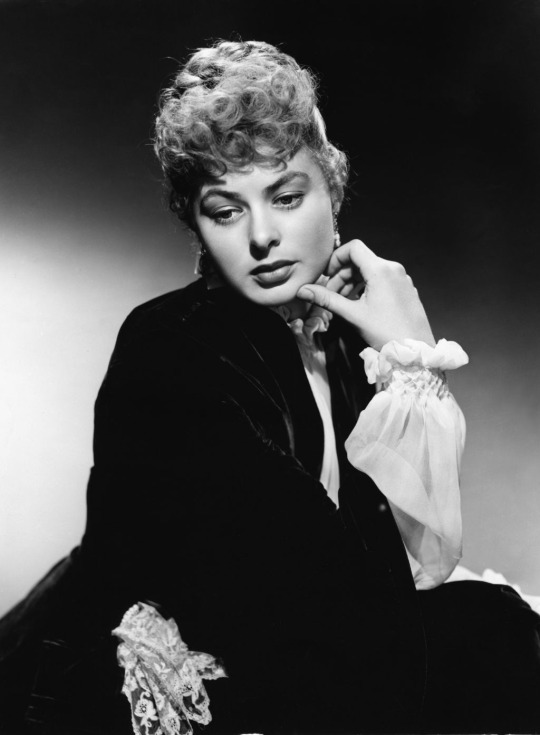
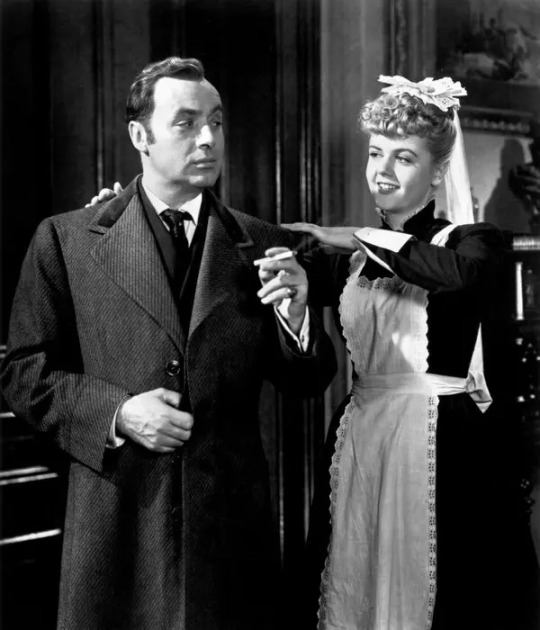

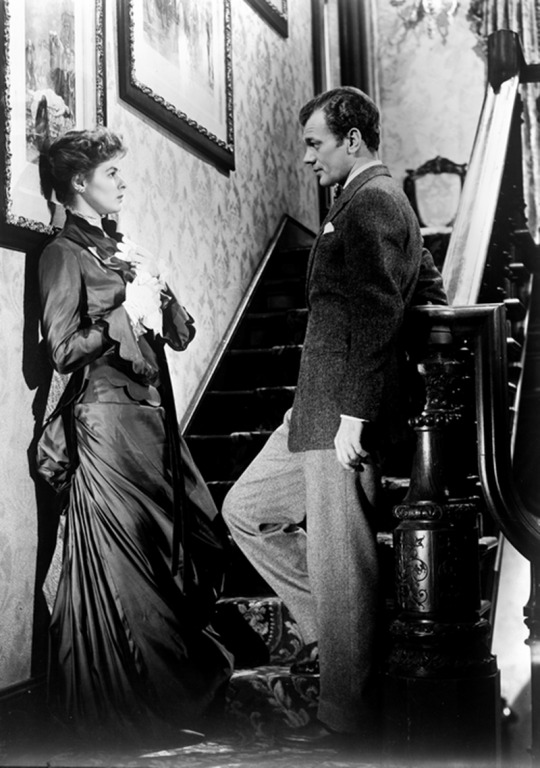

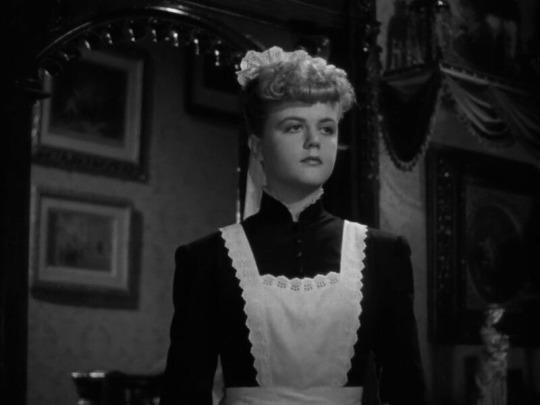
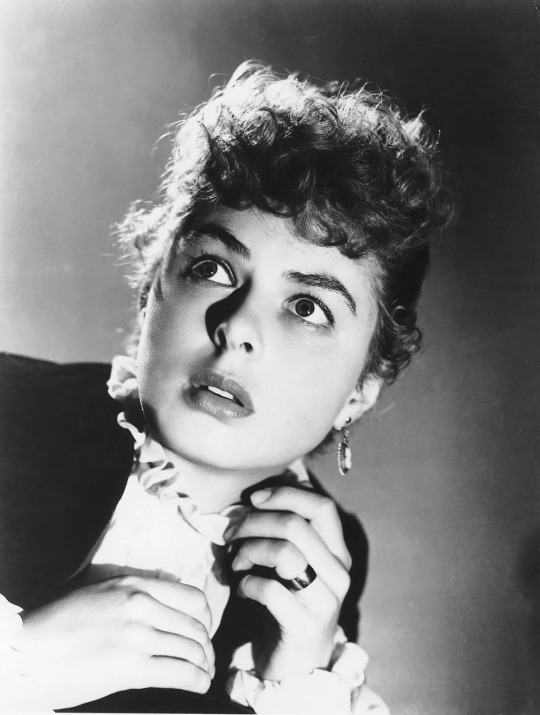
George Cukor’s GASLIGHT, starring Charles Boyer, Ingrid Bergman, Joseph Cotten, and Angela Lansbury in her film debut, celebrated its premiere in New York City #OnThisDay in 1944.
63 notes
·
View notes
Text
Dread by the Decade: Gaslight
👻 You can support me on Ko-fi! ❤️

★★★★½
Plot: After moving into the home of her murdered aunt with her new husband, a woman begins to fear she is losing her mind.
Review: Though a bit more Hollywood than the original, it remains both a stirring murder mystery and disturbing exploration of psychological abuse.

Remake of: Gaslight (1940) Source Material: Gas Light by Patrick Hamilton Year: 1944 Genre: Psychological Horror, Mystery Country: United States Language: English Runtime: 1 hour 54 minutes

Director: George Cukor Writers: John Van Druten, Walter Reisch, John L. Balderston Cinematographer: Joseph Ruttenberg Editor: Ralph E. Winters Composer: Bronisław Kaper Cast: Ingrid Bergman, Charles Boyer, Joseph Cotten, Angela Lansbury, Barbara Everest, May Whitty

-----
Story: 4/5 - Tense, steady, and heartbreaking, though there are a few too many coincidences.
Performances: 5/5 - Bergman and Boyer are incredible, their toxic dynamic portrayed to a painfully realistic degree, and the rest of the cast is also excellent.
Cinematography: 5/5 - Perfect lighting and composition.

Editing: 4.5/5 - Enhances the slow but purposeful pacing.
Music: 4/5
Effects & Props: 3.5/5 - The jewels look a bit fake but everything else is solid.
Sets: 5/5 - Ornate and stunning.
Costumes, Hair, & Make-Up: 5/5 - Absolutely gorgeous. The costuming and hair for Paula is especially remarkable.
youtube
Trigger Warnings:
Very mild violence
Domestic and emotional abuse
Misogyny (period appropriate)
Mentions of institutionalization
Classism (period appropriate)
#Gaslight (1944)#Gaslight#American#George Cukor#psychological horror#Dread by the Decade#review#1940s#★★★★½
4 notes
·
View notes
Note
Hello! I am very interested in joining, but would like to know if there are any faceclaims you all would really like to see join the rp? There are just so many great faces that I wanted to ask before sending in an application. Thank you!
hi, thank you for your interest! here are some fcs that came to mind! mason gooding, harris dickinson, pedro pascal, oscar isaac, manny montana, rudy pankow, jonathan daviss, andrew garfield, lorenzo zurzolo, arón piper, manny jacinto, evan mock, aaron tveit, thomas doherty, archie renaux, brenton thwaites, casey deidrick, avan jogia, maxence danet fauvel, logan lerman, keith powers, raymond ablack, rahul kohli, andy samberg, joseph quinn, xolo maridueña, tanner buchanan, clayton cardenas, mario casas, bill skarsgard, zethpan smith gneist, bradley cooper, joseph morgan, alberto rosende, emilio sakraya, tom holland, manu rios, luke grimes, kedar williams stirling, regé jean page, andré lamoglia, henry zaga, chay suede, elias kacavas, josh heuston, nico tortorella, felix mallard, jamie dornan, chris wood, justice smith, luka sabbat, alex fitzalan, jeff satur, herman tømmeraas, carloto cotta, ander puig, froy gutierrez, charles michael davis, george sear, darren barnet, jon bernthal, ben barnes, anthony ramos, corey mylchreest, anthony keyvan, sinqua walls, cody christian, eddie redmayne, jaehyun, hugh dancy, michael evans behling, elliot fletcher, emre bey, joe keery, chance perdomo, ross lynch, gavin leatherwood, richard madden, alex aiono, shiloh fernandez, chris evans, chris wood, jacob elordi, danny ramirez, drew starkey, havana rose liu, davika hoorne, lalisa, lulu antariksa, christina hendricks, zion moreno, jennie kim, danielle rose russell, kaylee bryant, anya chalotra, simone ashley, charithra chandran, maia mitchell, cierra ramirez, melissa barrera, hailee steinfeld, diane guerrero, stephanie beatriz, melissa fumero, greta onieogou, maia reficco, alisha boe, paris berelc, camila mendes, bruna marquezine, camila queiroz, anne hathaway, lauren tsai, rachel hilson, inbar lavi, lesley ann brandt, giorgia whigham, antonia gentry, katie douglas, melisa asli pamuk, margot robbie, jenna coleman, halston sage, chelsea clark, brianne howey, cindy kimberly, chloe bennet, halle bailey, sara waisglass, jessica alexander, christian serratos, phoebe tonkin, claire holt, isabella gomez, courtney eaton, madelyn cline, madison bailey, abigail cowen, jessie mei li, blu hunt, auli’i cravalho, anya taylor joy, annie murphy, mila kunis, simary barlas, mimi keene, aimee lou wood, emma mackey, samantha logan, natalia dyer, megan suri, maya hawke, coco jones, jasmine tookes, ana de armas, chase sui wonders, priscilla quintana, maris rascal, keke palmer, angelique boyer, rachel sennott, benedetta porcaroli, valentina zenere, ludovica martino, joey king, fivel stewart, adeline rudolph, natasha liu bordizzo – hope these help!

25 notes
·
View notes
Text
new septembers readathon book recs
i like making lists so i thought it would be fun to make a list of recommendations that fit at least one prompt in case people were struggling to find books!! every book on this list, i have either already read & enjoyed, or it's on my tbr:) books i have not read yet will be marked by an asterisk! and if you're not joining the readathon, this can still help you find some good books to read this autumn :)
The Witch Haven by Sasha Peyton Smith (a book about witches)
The Very Secret Society of Irregular Witches by Sangu Mandanna* (a book about witches, a cozy fantasy)
Our Shadows Have Claws: 15 Latin American Monster Stories edited by Yamile Saied Méndez and Amparo Ortiz (a creepy/horror book, a short story collection)
Babel: An Arcane History by R.F. Kuang (dark academia, a book that takes place (partially) in september)
Mexican Gothic by Sylvia Moreno-Garcia (a book about a haunted house, a creepy/horror book, a gothic novel)
Practical Magic by Alice Hoffman* (a book about witches, an autumnal romance)
Ninth House by Leigh Bardugo (dark academia, a book that takes place (partially) in september)
Weyward by Emilia Hart* (a book about witches)
Rebecca by Daphne du Maurier (a gothic novel, an autumnal classic)
Payback's a Witch by Lana Harper* (a book about witches, an autumnal romance)
Your Lonely Nights Are Over by Adam Sass (a creepy/horror book, a september 2023 release)
Wild Is the Witch by Rachel Griffin* (a book about witches)
Night of the Mannequins by Stephen Graham Jones (a creepy/horror book)
The Ex Hex by Erin Sterling* (a book about witches, an autumnal romance)
After Dark with Roxie Clark by Brooke Lauren Davis (a murder mystery, a book with a red cover)
The Dead Romantics by Ashley Poston* (an autumnal romance)
Saint Juniper's Folly by Alex Crespo (a creepy/horror book, a book about a haunted house)
The Once and Future Witches by Alix E. Harrow* (a book about witches)
If We Were Villains by M.L. Rio (dark academia, a book that takes place (partially) in september)
Legends & Lattes* by Travis Baldree* (a cozy fantasy, an autumnal romance)
Hollow by Shannon Watters, Branden Boyer-White, Berenice Nelle, and more (a graphic novel, a retelling/reimagining)
The Hacienda by Isabel Cañas* (a book about a haunted house, a creepy/horror book)
M Is for Monster by Talia Dutton (a graphic novel, a retelling/reimagining)
Slasher Girls & Monster Boys edited by April Genevieve Tucholke (a creepy/horror book, a short story collection)
The Atlas Six by Olivie Blake* (dark academia)
You're Not Supposed to Die Tonight by Kalynn Bayron (a creepy/horror book, a book with a red cover)
What Moves the Dead by T. Kingfisher* (a creepy/horror book, a retelling/reimagining, a gothic novel)
Hallowe'en Party by Agatha Christie (a murder mystery, a book with an orange cover)
Our Hideous Progeny by C.E. McGill* (a creepy/horror book, a retelling/reimagining)
The Spirit Bares Its Teeth by Joseph Andrew White (a creepy/horror book, a gothic novel, a september 2023 release)
A Dowry of Blood by S.T. Gibson* (a creepy/horror book, a book about vampires, a retelling/reimagining)
Why Didn't They Ask Evans? by Agatha Christie (a murder mystery)
A House with Good Bones by T. Kingfisher* (a gothic novel, a creepy/horror book)
Ophelia After All by Racquel Marie (a book with an orange cover)
House of Hunger by Alexis Henderson* (a book about vampires, a creepy/horror book)
Hangsaman by Shirley Jackson (dark academia, an autumnal classic)
Over My Dead Body by Sweeney Boo* (a graphic novel, a book about witches, a book that takes place at a private/boarding school)
Suddenly a Murder by Lauren Muñoz (a murder mystery, a september 2023 release)
Carmilla by J. Sheridan Le Fanu* (a creepy/horror book, a book about vampires, a book with a red cover, an autumnal classic)
Thieves' Gambit by Kayvion Lewis (a book with a red cover, a september 2023 release)
Coven by Jennifer Dugan, Kit Seaton* (a graphic novel, a book about witches)
Where Echoes Die by Courtney Gould (a creepy/horror book, a book with an orange cover)
The Lesbiana's Guide to Catholic School by Sonora Reyes* (a book with a yellow cover)
I Was Born for This by Alice Oseman* (a book with an orange cover)
Dr. Jekyll and Mr. Hyde by Robert Louis Stevenson* (a creepy/horror book, an autumnal classic)
Cemetery Boys by Aiden Thomas (autumnal romance, a book with a red cover)
The Body in the Library by Agatha Christie (a murder mystery, a book with a red cover)
She Is a Haunting by Trang Thanh Tran* (a creepy/horror book)
The Hobbit by J.R.R. Tolkien (an autumnal classic)
The Fellowship of the Ring by J.R.R. Tolkien (an autumnal classic, a book that (partially) takes place in september)
House of Hollow by Krystal Sutherland (a creepy/horror book)
She Gets the Girl by Rachael Lippincott, Alyson Derrick* (a book with a yellow cover, a book that (partially) takes place in september)
These Fleeting Shadows by Kate Alice Marshall (a creepy/horror book, a book about a haunted house)
Rules for Vanishing by Kate Alice Marshall (a creepy/horror book)
The Gathering Dark: An Anthology of Folk Horror edited by Tori Bovalino (a creepy/horror book, a short story collection)
Northanger Abbey by Jane Austen (an autumnal romance, an autumnal classic, a book with a red cover)
Sawkill Girls by Claire Legrand (a creepy/horror book)
Dracula by Bram Stoker (a book about vampires, a creepy/horror book, an autumnal classic)
The Weight of Blood by Tiffany D. Jackson (a creepy/horror book, a retelling/reimagining)
The Murder of Roger Ackroyd by Agatha Christie (a murder mystery)
Frankenstein by Mary Shelley (a creepy/horror book, an autumnal classic)
The Agathas by Kathleen Glasgow, Liz Lawson (a murder mystery)
The Picture of Dorian Gray by Oscar Wilde (an autumnal classic)
A Study in Charlotte by Brittany Cavallaro (a retelling/reimagining, a murder mystery, a book that takes place at a private/boarding school)
Macbeth by William Shakespeare (an autumnal classic)
Truly Devious by Maureen Johnson (a murder mystery, a book that takes place at a private/boarding school, a book that (partially) takes place in september)
The Woman in the Library by Sulari Gentill (a murdery mystery)
If I Have to Be Haunted by Miranda Sun* (a book with an orange cover, an autumnal romance, september 2023 release)
Her Body and Other Parties: Stories by Carmen Maria Machado (short story collection, creepy/horror book)
On the Jellicoe Road by Melina Marchetta (a book with a yellow cover, a book that takes place at a boarding/private school)
The Dead and the Dark by Courtney Gould (a creepy/horror book)
Crooked House by Agatha Christie (a murder mystery, a book that (partially) takes place in september, a book with a red cover)
Ace of Spades by Fariday Àbíké-Íyímídé (dark academia)
Lost in the Never Woods by Aiden Thomas (retelling/reimagining)
Howl's Moving Castle by Diana Wynne Jones (a cozy fantasy)
The Haunting of Hill House by Shirley Jackson (an autumnal classic, a creepy/horror book, a book about a haunted house, a book with an orange cover)
Little Women by Louisa May Alcott (an autumnal classic)
Anne of Green Gables by L.M. Montgomery (an autumnal classic)
Tripping Arcadia by Kit Mayquist* (a creepy/horror book, a gothic novel)
13 notes
·
View notes
Text
Birthdays 12.22
Beer Birthdays
Fred Krug (1833)
Denise Jones
Joanne Carilli (1966)
Five Favorite Birthdays
James Burke; Irish science writer, historian (1936)
Charles Stuart Calverley; English writer (1831)
Hector Elizondo; actor (1936)
Sir Gawain; English knight
Edgard Varese; French composer (1883)
Famous Birthdays
Peggy Ashcroft; actor (1907)
Barbara Billingsley; actor (1915)
Joseph Bloomingdale; department store founder (1842)
Erica Boyer; adult actress (1956)
Steve Carlton; Philadelphia Phillies P (1944)
Diocletian; Roman emperor (244)
Ralph Fiennes; English actor (1962)
Maurice Gibb; pop singer (1949)
Robin Gibb; pop singer (1949)
Ellie Hendricks; Baltimore Orioles C (1940)
"Lady Bird" Johnson; first lady (1912)
Frank B. Kellogg; politician (1856)
Andre Kostelanetz; conductor (1901)
Connie Mack; baseball manager (1862)
Dina Meyer; actor (1968)
Rick Nielsen; rock guitarist (1946)
James Oglethorpe; Georgia colony founder (1696)
Austin Norman Palmer; penmanship pioneer (1860)
Vanessa Paradis; singer, model, actor (1972)
Giacomo Puccini; Italian composer (1858)
Jean Racine; French writer (1639)
Gene Rayburn; comedian (1917)
Edwin Arlington Robinson; poet (1869)
Jordin Sparks; pop singer (1989)
Diane Sawyer; television journalist (1945)
1 note
·
View note
Text

All the Colors of the Dark by Chris Whitaker
The thirteen-year-old pirate. And the beekeeper that saved his life.
Chris Whitaker's All the Colors of the Dark is a beautiful beast of a book; a sweeping epic that embraces its characters’ flaws as completely as it does its always shifting genre elements. It's a story about the promises we make that in turn shape us into who we are, and a poignant tale about weight of trauma and loss. It's a richly affecting study of the therapeutic nature of art; of memory's role in healing and moving forward. It's a gripping serial killer procedural and a resounding exploration of justice that gives a voice to those who have violently had their voices taken from them. It's a small-town family drama and a bittersweet love story that understands longing every bit as well as it does the nuanced lines between the types of love we just might be lucky enough to experience in our lives; a celebration of that love—romantic, platonic and familial alike.
"To love and be loved is more than can ever be expected, more than enough for a thousand ordinary lifetimes."
This staggering piece of Americana literature quite literally delivers it all, making our hearts sing and break and sing again as we live these ~26-years with some of the very best characters I’ve encountered in recent years. With We Begin at the End, Whitaker gave us the fiercely brave Duchess Day Radley, who is truly one of the ages. With All the Colors of the Dark, he doubles down, giving us the Pirate Joseph 'Patch' Macauley and his lifelong friend, Special Agent (and Chief... and Beekeeper) Saint Brown, two characters who serve so brilliantly as counterpoints for one another, each creating narrative friction while simultaneously acting as an emotional polestar for the other.
"'You're all I've got," he said. And she thought, I'm all you'll need.
He doesn't stop there, either, delivering an entire ensemble cast chock-full of amazing supporting characters (my favorite is Sammy), all of whom—much like the aforementioned main characters—are so teeming with the hopes and regrets and strengths and weaknesses that make us all so imperfectly human. Paired with his sprawling, unpredictable plotting and devastatingly beautiful prose—and that dialogue!—these characters make even the rare moments when Whitaker's narrative brush strokes stray absolutely captivating.
"If you learn from the times you go wrong, you can revel in the times you don't."
This masterpiece of a novel contains lives; lives lost, lives lived, lives destroyed. Lives still out there somewhere, waiting to be found, like a painting in a gallery window. All the Colors of the Dark is a promise made and a promise kept. Entirely and absolutely.
"Why do some people fall so short?" "It depends what you measure against."
10/10
-Timothy Patrick Boyer.
#booklr#book review#new books#all the colors of the dark#chris whitaker#thriller books#epic books#literary fiction#americana#book recs#book reviews#readers of tumblr#books#reading#fiction#book recommendations#book club
2 notes
·
View notes